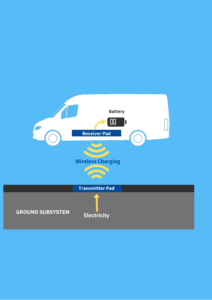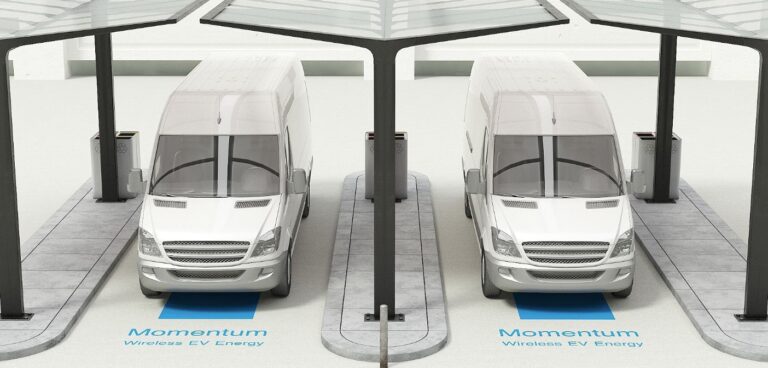The first UK trial of wireless charging technology for light commercial vans (LCVs) will launch in Edinburgh, Scotland in spring 2021.
Heriot-Watt University, Flexible Power Systems (FPS) and City of Edinburgh Council have been awarded £1.6m to explore how wireless charging at shared logistics hubs can reduce the cost of decarbonising last-mile transport.
The hub will be installed at Heriot Watt University’s Edinburgh campus in early 2021 to service specially adapted vans from both City of Edinburgh Council and Heriot-Watt’s estates team. The technology will be supplied by specialist firm, Momentum Dynamics.
The consortium will also test how shared infrastructure and fulfilment equipment at urban hubs at large scale can enhance vehicle and staff productivity. This involves developing a large-scale simulation of the behaviour of charging hub users using real world data to understand the impacts on their business.
If the project is successful, both the infrastructure and technology behind it could be adopted by fleets across the UK.

Scott Millar, fleet and workshops manager for the City of Edinburgh Council, said: “Providing charging infrastructure like shared hubs has the potential to play a key part of removing barriers to uptake for both the council and the community. We’re excited to take a leadership role here as a successful project in Edinburgh could present a model for other councils to use to reduce transport emissions in cities.”
A team at Heriot-Watt University is currently working with data science and simulation specialists from FPS to study how centrally located hubs could be developed in locations that minimise stem mileage for participating operators.
According to the researchers, such hubs would be equipped with fast chargers that can charge vehicles in 30-60 minutes. What’s more, they would be owned by a third party and users – e.g. retailers, parcel delivery firms, utilities, councils, and small-scale transport fleets – would be able to schedule access a day ahead.
Company transport planning systems would also be able to negotiate access to the hubs to ensure individual charging sessions fit with an optimal route.
“Productivity drivers and longer journeys mean commercial vehicles may need to charge away from the depot or at high speeds during the day,” said FPS managing director, Michael Ayres. “Rapid and ultra-rapid chargers required for a fast turnaround currently make up less than 25% of publicly available chargers and can be difficult to access if they are in use or out of service.
“High-power rapid chargers can be expensive both in terms of the chargers themselves and the electricity network infrastructure required to support them,” he continued. “Splitting the cost of chargers and the connection through a shared charging hub can mitigate a portion of these costs.”
The project is funded by the Office for Low-Emission Vehicles and delivered through Innovate UK.





